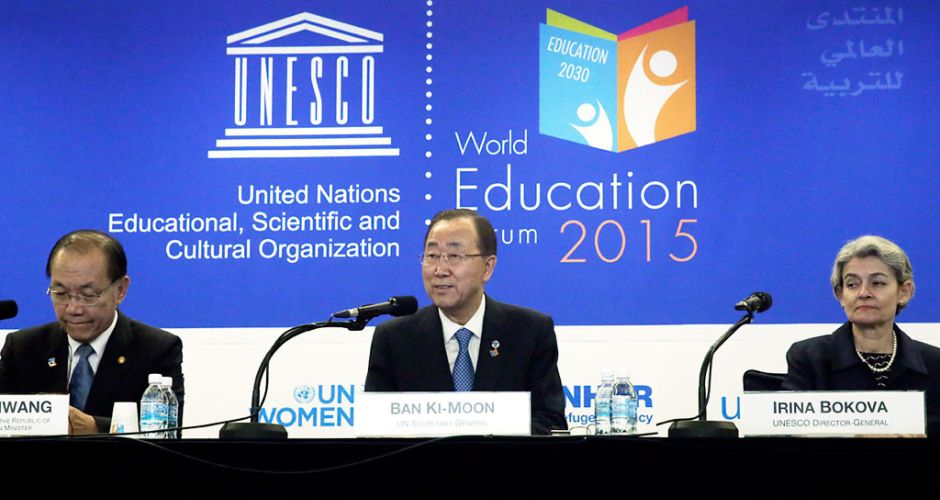Leading Education 2030

The 2030 Agenda for Sustainable Development is an ambitious, aspirational and universal agenda to wipe out poverty through sustainable development by 2030. When it adopted the new Agenda in September 2015, the international community recognized that education was essential for the success of all 17 of its goals. Ambitions for education are essentially captured in Sustainable […]
The 2030 Agenda for Sustainable Development is an ambitious, aspirational and universal agenda to wipe out poverty through sustainable development by 2030. When it adopted the new Agenda in September 2015, the international community recognized that education was essential for the success of all 17 of its goals. Ambitions for education are essentially captured in Sustainable Development Goal 4 which aims to “ensure inclusive and equitable quality education and promote lifelong learning opportunities for all”.
Incheon Declaration
Through the Incheon Declaration adopted at the World Education Forum in May 2015, UNESCO, as the United Nations’ specialized agency for education, was entrusted to lead and coordinate the Education 2030 agenda with its partners. The roadmap to achieve the ten targets of the education goal is the Education 2030 Framework for Action, adopted in November 2015, which provides guidance to governments and partners on how to turn commitments into action.
The Global Education 2030 Agenda new expanded scope:
- reaches from early childhood learning to youth and adult education and training;
- emphasises the acquisition of skills for work;
- underlines the importance of citizenship education in a plural and interdependent world;
- focuses on inclusion, equity and gender equality;
- and aims to ensure quality learning outcomes for all, throughout their lives.
Education For All
Education 2030 goes beyond past attempts to ensure access to basic education, as set out in the Education For All goals and the education-related Millennium Development Goal 2 of 2000-2015.
The main responsibility for implementing the agenda lies with governments, with UNESCO and partners providing support through coordinated policy advice, technical assistance, capacity development and monitoring of progress at global, regional and national levels.
Related News
Latest Webinars
Announcements
Newsletter
Latest News

Persia Educational Foundation Hosts an Exclusive 16 Days of Activism Reception Marking Iran’s Woman Life Freedom Movement

Celebrate “The Last King”: A Historic Persian Adaptation of Stephen King’s
